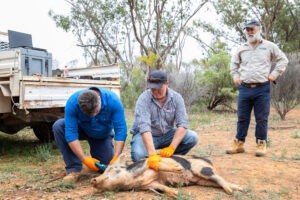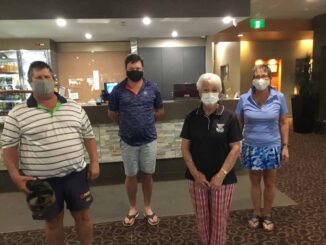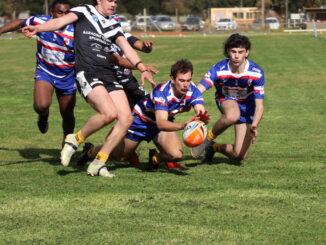
Western Local Land Services staff are ramping up their collaring efforts on wild dogs and pigs as part of the Western Tracks project.
The collaborative research project aims to improve the management of wild dogs and feral pigs.
Private and public landholders, pest animal management and Landcare groups and gov-ernment agencies are working together to deliver the project.
The effectiveness of control efforts are measured by using GPS collars to monitor wild dogs and feral pigs.
After working through a number of chal-lenges presented by COVID-19 restrictions, collaring efforts for wild dogs in a the West-ern region got back underway in early Sep-tember.
Currently 46 traps are being monitored by members of the project team, Professional Wild Dog Controllers and local landholders.
Having collared seven wild dogs earlier this year, the project team are hoping to collar another 28 wild dogs over the next month.
Of the seven wild dogs that were collared, two are still alive and continuing to provide data of their movements, with the five de-ceased wild dogs provided valuable data while they were alive.
Of the 30 feral pigs that were collared by the end of 2020, 25 are still roaming the land-scape, with some of the initial data provided to landholders and stakeholders.
The project team are looking to re-issue the five collars that were removed from the de-ceased feral pigs, with good numbers of feral pigs currently being free fed and monitored with cameras at trap sites to enable collaring in the coming days.
Landholders are reminded that if they trap or shoot a feral pig and find it has an ear tag, simply record the tag number and GPS loca-tion of the site and give your lo-cal biosecurity officer a call and they can tell you where it was first tagged.
More information about the project is avail-able at www.lls.nsw.gov.au or by contacting your local biosecurity officer, or Western LLS office.


